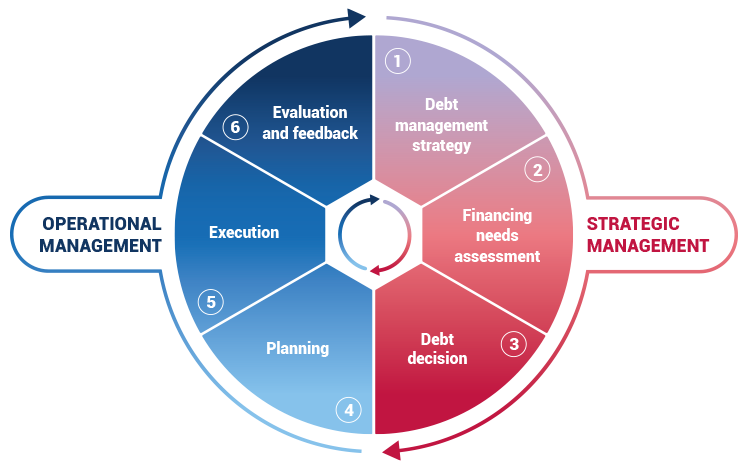Comprehensive Debt Management Plan Services for Effective Financial Healing
Comprehensive Debt Management Plan Services for Effective Financial Healing
Blog Article
Professional Tips and Approaches for Carrying Out a Successful Debt Management Plan
When it comes to browsing the intricacies of debt monitoring, having a well-balanced plan is essential for accomplishing monetary security. From analyzing your current monetary standing to discussing with financial institutions, each action plays an essential role in forming an effective financial debt administration strategy.
Analyzing Your Present Financial Scenario
Before getting started on a financial debt administration strategy, it is critical to extensively review your current monetary standing. Understanding your economic situation is the foundational action in the direction of properly handling and reducing your debt.

Establishing a Realistic Budget Plan
Recognizing your present monetary circumstance lays the foundation for developing a practical budget that lines up with your financial obligation management goals and economic capabilities. When developing a budget plan, it's important to precisely track your revenue, expenses, and financial obligation obligations. By classifying your costs, you can determine areas where you might need to cut back to release up funds for financial debt settlement.

Focusing On and Dealing With Financial Debts
To effectively restore control of your financial resources and job in the direction of financial security, focusing on and tackling your financial debts is an essential action in your financial obligation monitoring strategy. Beginning by listing all your debts, including bank card, car loans, and any type of various other outstanding equilibriums. Determine high-interest debts that are costing you the most cash and focus on paying them off initially. By focusing on these high-interest financial obligations, you can conserve money in the lengthy run and reduce the complete amount you owe.
After determining your high-interest financial obligations, take into consideration making use of methods like the debt snowball or financial obligation avalanche approach to pay them off systematically. The financial debt snowball approach includes settling the smallest financial debts first, while the financial obligation avalanche approach focuses on financial debts with the greatest rates of interest. Select the approach that straightens best with your economic objectives and motivates you to keep making progression.
Furthermore, think about negotiating with creditors for lower rate of interest or setting up a layaway plan if you're why not find out more battling to meet your current obligations. Seeking aid from a credit scores therapist or economic expert can additionally provide valuable understandings and guidance on how to properly tackle your financial obligations - debt management plan services. By prioritizing and addressing your debts strategically, you can pave the method towards a debt-free future and improved monetary well-being
Bargaining With Financial Institutions
When involving in debt administration, working out with financial institutions is a vital action towards discovering mutually advantageous services for financial obligation payment. Before launching settlements, it is crucial to have a clear understanding of your economic scenario, including your earnings, expenditures, and the overall amount of debt owed.

Structure Healthy Financial Habits
Incorporating regular budgeting practices is crucial for cultivating healthy monetary habits. Budgeting permits people resource to track their revenue and expenses, allowing them to make informed decisions about their monetary priorities. Setting specific economic objectives, such as conserving for emergencies or retirement, can provide a clear roadmap for taking care of cash effectively.
An additional key facet of building healthy economic routines is living within one's ways. This includes costs much less than what is made and avoiding unneeded financial debt. Adopting a frugal state of mind and differentiating in between demands and wants can help individuals make even more prudent spending choices.
Consistently reviewing monetary declarations and keeping track of credit scores reports are vital habits that advertise monetary awareness and duty. By staying educated concerning their monetary standing, people can identify possible issues beforehand and take positive actions to resolve them.
Moreover, establishing a financial savings practice, despite tiny amounts, can add significantly to long-lasting monetary security. Conserving regularly not just constructs an economic padding for unforeseen expenses but likewise fosters a sense of technique and duty in the direction of finance. By continually practicing these routines, people can lay a strong foundation for a steady monetary future.
Conclusion
Finally, executing an effective financial debt administration plan needs an extensive evaluation of one's financial situation, the growth of a sensible budget plan, focusing on and dealing with financial debts, negotiating with creditors, and structure healthy and balanced Learn More monetary practices (debt management plan services). By following these expert ideas and methods, people can take control of their financial resources and job towards attaining economic stability and freedom from financial debt
Understanding your existing financial circumstance lays the groundwork for developing a realistic budget plan that straightens with your financial obligation monitoring objectives and monetary abilities.To efficiently regain control of your funds and work towards monetary security, focusing on and tackling your financial debts is a critical step in your debt administration strategy.After identifying your high-interest financial obligations, think about making use of techniques like the financial debt snowball or financial debt avalanche approach to pay them off systematically. The financial debt snowball approach entails paying off the smallest financial obligations initially, while the financial obligation avalanche approach prioritizes financial obligations with the greatest rate of interest prices.When engaging in financial obligation administration, negotiating with creditors is an essential step in the direction of locating mutually advantageous remedies for debt repayment.
Report this page